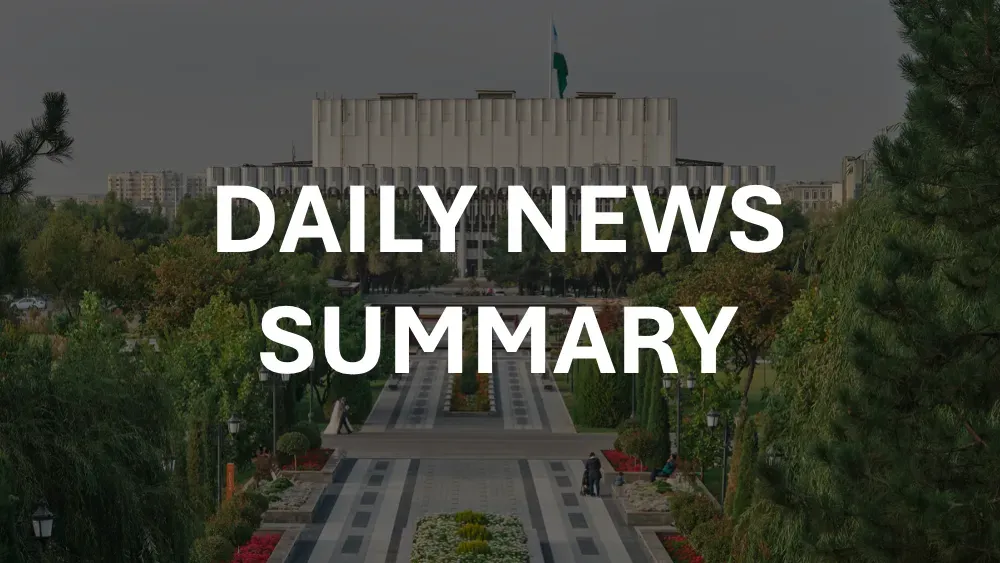📍 Get daily intelligence from Kazakhstan and Central Asia. Lexica News delivers local news that shapes global decisions—synthesized from local sources international media misses.
Kazakhstan's startup ecosystem has achieved a remarkable 2.9% startup-to-unicorn conversion rate, surpassing global technology leaders including Israel (2.3%), China (2.0%), and the United States (1.3%). This Central Asian nation has transformed from a resource-driven economy into a $26 billion tech hub - an eighteen-fold increase since 2019 that outpaces global tech sector growth of 2.6 times over the same period. With Astana Hub ranking among the world's top 75 startup ecosystems and two unicorn companies driving $6.6 billion in combined revenues, Kazakhstan demonstrates how strategic government investment and innovation infrastructure can rapidly scale technology capabilities in emerging markets.
Current Landscape
Kazakhstan's tech ecosystem centers around two distinct success stories that showcase different pathways to unicorn status. Kaspi.kz operates a payments, marketplace, and fintech "super app" that achieved a $20 billion market capitalization by December 2024, making it Kazakhstan's most valuable public company. The platform serves 13.5 million monthly active users, with 65% using the app daily for services ranging from e-commerce and grocery delivery to bill payments and government services.
Freedom Holding Corp, the second unicorn, generated $1.03 billion in revenue during the first half of fiscal 2025, representing 33.4% growth. The financial services company operates in 22 countries but maintains its headquarters in Almaty, with leading positions in Kazakhstan Stock Exchange rankings for equity, debt, and government securities trading.
The Astana Hub technology park hosts 1,600 IT companies, including over 425 with foreign participation. In 2024, these companies collectively attracted $177 million in investments, increased tech service exports to $481.5 million, and achieved total revenue of $1.3 billion. The tech park's residents created over 28,000 new jobs in 2024, reflecting substantial employment generation within the sector.
Kazakhstan maintains 74% of all venture capital deals in Central Asia, with Kazakhstani startups raising $71 million in 2024. The country demonstrates an average annual investment growth rate of 35% since 2018, significantly outpacing regional competitors. Over 80 venture deals were recorded in 2024, with the number of active investors tripling to over 60 participants.
Documented Experiences
The Silkway Accelerator, developed in partnership with Google for Startups, provides concrete evidence of program effectiveness. From over 1,300 applicants across Central Eurasia, 62 startups graduated and collectively reached approximately $500 million in market valuation while attracting $28.6 million in investments. This demonstrates a systematic approach to startup development with measurable outcomes.
Higgsfield AI emerged as Kazakhstan's top-funded startup in 2024, raising $8 million in pre-seed funding led by Menlo Ventures and AI Capital. The company's Diffuse app uses custom text-to-video models for social media content creation and now serves over 2 million active users. Founded by Kazakhstani engineers and led by former Snapchat AI leader Alex Mashrabov, the company represents successful international talent attraction to the local ecosystem.
Regional expansion experiences show mixed but promising results. Astana Hub launched 18 regional centers, generating 450 startup ideas and adding 186 tech companies to the ecosystem. However, the concentration of success remains heavily centered in Almaty and Nur-Sultan, with regional centers showing slower development patterns typical of emerging market expansion challenges.
International programs demonstrate tangible outcomes. The AlchemistX and Silicon Valley Residency programs helped 22 startups achieve progress in Silicon Valley and raise $1.4 million in investments during 2024. The Global Outsourcer program participants signed 98 export contracts worth $355,000 across 24 countries, compared to 69 contracts totaling $158,000 in 2023, indicating steady growth in international market penetration.
Training programs show substantial enrollment but varying completion rates. Over 17,000 students have graduated from Astana Hub's technology training programs since 2018, while over 80,000 students earned more than 140,000 certificates through partnerships with global education platforms. The IT Aiel program provided free training to over 2,200 women from 17 regions in 2024, demonstrating targeted skills development initiatives.
Stakeholder Realities
Government data shows substantial investment commitments, with $650 billion tenge allocated for scientific initiatives and $280 million designated for startup ecosystem development under the Digital Kazakhstan program. The state invested approximately 15 billion tenge ($28.9 million) in Astana Hub over five years, generating tech industry revenues of 1.5 trillion tenge ($2.9 billion) and net export earnings of $1.1 billion.
Private sector perspectives reveal mixed confidence levels. Large Kazakhstani businesses pledged over $100 million as starting capital for the government's new $1 billion Fund-of-Funds initiative announced in December 2024, indicating private sector willingness to co-invest. However, SAFE agreements dominate 63% of early-stage deals, suggesting investor preference for flexible structures in an emerging market environment.
International investor engagement shows selective participation. Kazakhstan's 12 venture funds managed $157 million in 2024, with 32% already invested in startups. Global firms like Menlo Ventures, AI Capital, and Charge Ventures participated in local deals, but participation remains concentrated among specialized emerging market investors rather than mainstream Silicon Valley funds.
Talent mobility patterns reveal complex dynamics. The ecosystem benefits from specialists migrating from Ukraine, Russia, and Belarus, while simultaneously experiencing outflow as many Kazakhstani IT specialists seek opportunities abroad. This bidirectional flow creates both competition for local positions and access to international expertise.
Educational institutions report 60% of universities planning AI courses by 2029, with 20% already introducing AI courses to meet industry demands. However, academic institutions face challenges aligning curriculum with rapidly evolving tech industry requirements, particularly in specialized areas like artificial intelligence and blockchain development.
Operational Context
Funding structures in Kazakhstan's ecosystem operate through multiple channels with varying accessibility. Early-stage companies typically access Astana Hub's Seed Money program, which supported 40 projects in 2024. The newly established Astana Hub Ventures fund operates with $10 million in capital, targeting investments in both Kazakhstani startups and broader Central Asian projects.
Regulatory processes demonstrate relative efficiency compared to regional standards. Companies operating within Astana Hub benefit from streamlined procedures and tax incentives, though specific processing timelines vary by sector. Binance Kazakhstan received full regulatory licensing from AFSA in September 2024, indicating progressive digital asset regulation that facilitates fintech development.
Export capabilities show steady improvement. Tech service exports reached $481.5 million in 2024, representing 52% growth year-over-year. Companies increasingly target international markets, with participants signing contracts across 24 countries including the United States, United Kingdom, Germany, Canada, and UAE.
Infrastructure development costs reflect substantial government commitments. The Digital Kazakhstan program allocated $280 million for ecosystem development, creating eight new accelerators and three venture funds. Freedom Holding Corp plans $650 million in telecommunications infrastructure investments over five years, indicating private sector confidence in long-term market development.
Digital payment infrastructure demonstrates advanced capabilities. Non-cash payment volume reached 15.4 trillion tenge ($32.5 billion) in May 2024, with 89% of transactions conducted digitally. This positions Kazakhstan as a regional leader in digital finance adoption, providing favorable conditions for fintech startups.
International connectivity shows improving but limited direct access. While companies can access global markets through various programs, direct venture capital connections to major international hubs require significant relationship-building efforts. Most successful international fundraising involves companies with prior Silicon Valley connections or participation in specialized emerging market programs.
Regional Comparison
Kazakhstan's performance significantly exceeds Central Asian peers across key metrics. The country accounts for 74% of regional venture capital deals and maintains over 1,000 startups compared to Uzbekistan's 400+ startups. While Uzbekistan achieved impressive 11-fold growth in venture capital attraction in 2024, reaching $17.5 million from $6.3 million in 2023, Kazakhstan's $71 million total maintains substantial scale advantages.
Digital payment adoption shows Kazakhstan's clear regional leadership. The country reports 89% non-cash payment usage compared to Uzbekistan's 42% and Kyrgyzstan's 39%. Bank account penetration reaches 81% in Kazakhstan versus 45% in Kyrgyzstan and 44% in Uzbekistan, indicating more developed financial infrastructure.
Astana achieved a score over 30% higher than Almaty in StartupBlink's ranking, with both cities significantly outperforming other Central Asian urban centers. The concentration of resources in these two cities creates development gaps compared to other regional capitals that lack similar innovation infrastructure investments.
Fintech development demonstrates Kazakhstan's accelerated progress. The number of fintech startups grew from 50 in 2018 to 200 in 2024, while regional competitors show more modest expansion rates. Kazakhstan's fintech market benefits from progressive regulation and established banking infrastructure that neighboring countries are still developing.
Government support mechanisms show varying approaches across the region. Kazakhstan's comprehensive ecosystem development through Astana Hub and substantial financial commitments contrast with more limited government technology initiatives in neighboring countries. The $1 billion Fund-of-Funds initiative represents unprecedented regional investment scale for startup ecosystem development.
Conclusion
Kazakhstan's tech ecosystem demonstrates how strategic government investment, progressive regulation, and international partnerships can rapidly develop innovation capabilities in emerging markets. The achievement of two unicorn companies generating $6.6 billion in combined revenues, alongside an 18-fold ecosystem expansion since 2019, provides concrete evidence of systematic development rather than isolated success stories. Current data shows sustained momentum with $177 million in investments attracted during 2024 and over 28,000 new jobs created within the sector.
The ecosystem's maturation appears evident in key performance indicators including 74% of regional venture capital deals, export revenues reaching $481.5 million, and recognition among the world's top 75 startup ecosystems. However, concentration in Almaty and Nur-Sultan, dependence on government-led initiatives, and limited deep international venture capital connections indicate areas requiring continued development. The announced $1 billion Fund-of-Funds initiative and private sector commitments exceeding $100 million suggest trajectory toward more sustainable private-sector driven growth.
Regional observers monitor several key factors for continued development: the effectiveness of new funding mechanisms in attracting international investment, the ability to scale successful models beyond the two primary cities, and the development of more specialized technology capabilities beyond fintech dominance. The target of training 100,000 IT specialists by 2025 and expanding AI capabilities through the new International AI Center will provide measures of the ecosystem's evolution toward higher-value technology development.
FAQs
What accounts for Kazakhstan's exceptional startup-to-unicorn conversion rate?
Kazakhstan achieves a 2.9% conversion rate through focused ecosystem development centered around Astana Hub, which provides comprehensive support from early-stage funding to international market access. The combination of government investment, tax incentives, and strategic partnerships with global organizations like Google for Startups creates conditions that systematically support company scaling. Additionally, the country's strong digital infrastructure, with 89% non-cash payment adoption, provides favorable conditions for fintech and tech companies to achieve rapid growth.
How sustainable is the rapid 18x growth since 2019?
The growth demonstrates solid fundamentals with measurable outcomes including $1.3 billion in collective revenue from tech park residents, over 28,000 jobs created, and export revenue reaching $481.5 million. Government investment of 15 billion tenge generated 1.5 trillion tenge in industry revenues, indicating positive return on investment. However, growth rates naturally moderate as the ecosystem matures, and continued expansion depends on maintaining competitiveness against regional competitors and global market conditions.
What role do the two unicorns play in the broader ecosystem?
Kaspi.kz and Freedom Holding Corp provide demonstration effects that attract international attention and validate Kazakhstan as a viable tech market. Kaspi's $20 billion valuation showcases successful super-app development, while Freedom Holding's $1.03 billion revenue demonstrates financial services scalability. Both companies serve as talent magnets and potential sources of serial entrepreneurs, though their impact on early-stage startup development remains limited as they operate as mature companies rather than active ecosystem investors.
How does government involvement affect private sector development?
Government initiatives like the Digital Kazakhstan program and Astana Hub provide essential infrastructure and initial funding that private markets would struggle to deliver in an emerging economy context. The $1 billion Fund-of-Funds structure specifically aims to leverage private investment rather than replace it, with over $100 million already pledged by Kazakhstani businesses. However, government dominance in early-stage funding could potentially limit private investor development and market-driven selection mechanisms.
What are the main operational challenges for international investors?
International investors face limited direct venture capital connections requiring relationship-building through specialized emerging market programs. Due diligence processes can be complex due to developing legal frameworks and limited comparable market data. Currency volatility and geopolitical factors in the region create additional risk considerations. However, successful cases like Higgsfield AI's $8 million raise from Menlo Ventures demonstrate feasible pathways for international investment when proper preparation and relationships are established.
How does talent development compare to demand?
Over 80,000 students earned certificates through global education partnerships, and universities are rapidly expanding AI and tech curricula with 60% planning AI courses by 2029. However, simultaneous talent inflow from neighboring countries and outflow to international markets creates complex dynamics. The creation of 28,000 new tech jobs in 2024 suggests strong demand, but quality gaps between available skills and industry requirements remain, particularly in specialized areas like artificial intelligence and advanced software development.
What distinguishes Kazakhstan's fintech sector regionally?
Kazakhstan demonstrates clear fintech leadership with 200 startups (up from 50 in 2018), 89% non-cash payment adoption, and progressive regulatory frameworks including full licensing for digital asset platforms like Binance Kazakhstan. The country's 81% bank account penetration significantly exceeds regional averages, providing a foundation for financial innovation. Strong payment infrastructure supporting 15.4 trillion tenge in monthly transactions creates scale opportunities that neighboring markets cannot yet provide.
Track Kazakhstan with Local Intelligence
The rare earth story exemplifies why local sources matter. While international media reports MOUs and ministerial visits, Kazakh outlets cover the community protests, water disputes, and regulatory changes that actually determine project outcomes.
Lexica delivers what you're missing:
- Daily briefs at 7AM Astana time covering 40 top stories from politics to economics
- Full-text synthesis from sources in Kazakh
- Searchable archive to track how today's announcements connect to yesterday's promises
- Multi-country coverage across Central Asia for regional context
Whether you're evaluating investment opportunities, monitoring supply chain risks, or analyzing geopolitical developments, local intelligence reveals what international headlines obscure.







